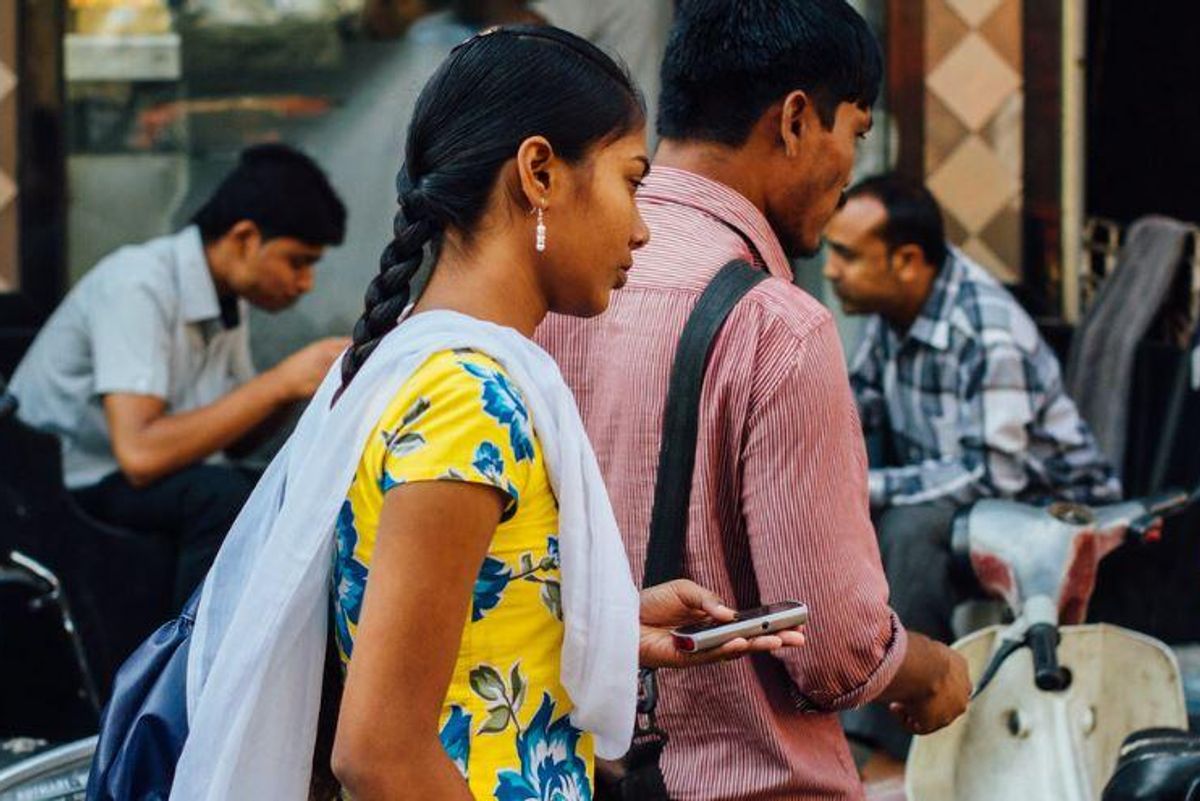
A village in India’s Maharashtra state has had enough of two of the modern world’s greatest addictions, the internet and television. It has imposed a daily digital detox to give people a break from stress-inducing screen time so they can reconnect with the real world.
According to the BBC, a siren goes off every day at 7 p.m. in Vadgaon village in Sangli district, alerting all residents to turn off their TVs and smartphones. At 8:30 p.m., the siren blares again, letting everyone know it’s now OK to reconnect.
Vadgaon has a population of around 3,000 people, mainly composed of sugar mill workers and farmers.
The decision to implement a daily detox came after the COVID-19 pandemic exacerbated the village’s dependence on technology, especially its kids.
“When physical classes resumed (after Covid lockdown), teachers realized children had become lazy, they did not want to read and write and were mostly engrossed in their mobile phones before and after school hours. There weren’t separate study rooms in the homes of the villagers. So, I put forth the idea of a digital detox,” Vijay Mohite, president of the village council, said according to India Today.
At first, men in the village scoffed at the idea. However, the village’s women agreed that a detox would help the community after they admitted they were spending too much time watching serials on television.
“We decided at the village meeting on 14 August—the eve of India’s Independence Day—that we needed to stop this addiction,” Mohite told BBC. “From the next day, all television sets and mobiles were shut down when the siren went off.”
The time away from screens has allowed for conversation to flourish in the village and provided children with a better environment for studying.
“The children were just not concentrating on their studies before,” Dilip Mohite, a farmer with three sons, told the BBC. “Now, there is a normal conversation [at home, even] among the adults.”
It’s hard to take a digital detox by yourself. Even though your phone may be off, it’s stressful knowing that others might be trying to contact you. But when people take the detox as a group, one of the biggest drawbacks to a detox—fear of missing out—goes by the wayside.
Smartphones aren’t bad in and of themselves, but when we start spending more of our lives in the digital realm instead of the real world, things can quickly get out of balance.

Psychologist Kia-Rai Prewitt, Ph.D., explained the benefits of a digital detox to the Cleveland Clinic.
“Doing a digital detox is a great way to find out if technology is holding you back from living your best life. The results of unplugging can be far-reaching, from being more productive at work to deepening your relationships with family and friends,” Dr. Prewitt wrote. “Benefits of taking a technology timeout include sharper focus, less stress, better social interactions, more control of your time.”
It’d be interesting to see if any researchers study Vadgaon village’s unique approach to technology. It could inspire other places throughout the world to incorporate their own digital siestas where we put down our phones and reconnect with the real world every day for a few hours.
Imagine living in a community where every day, at the same time, people put down their phones, turned off their TVs and played on their lawns, took their dogs for a walk, or went down to the corner bar or coffee shop for a drink. That type of interaction has to make people a lot happier than endlessly scrolling or flipping channels.
